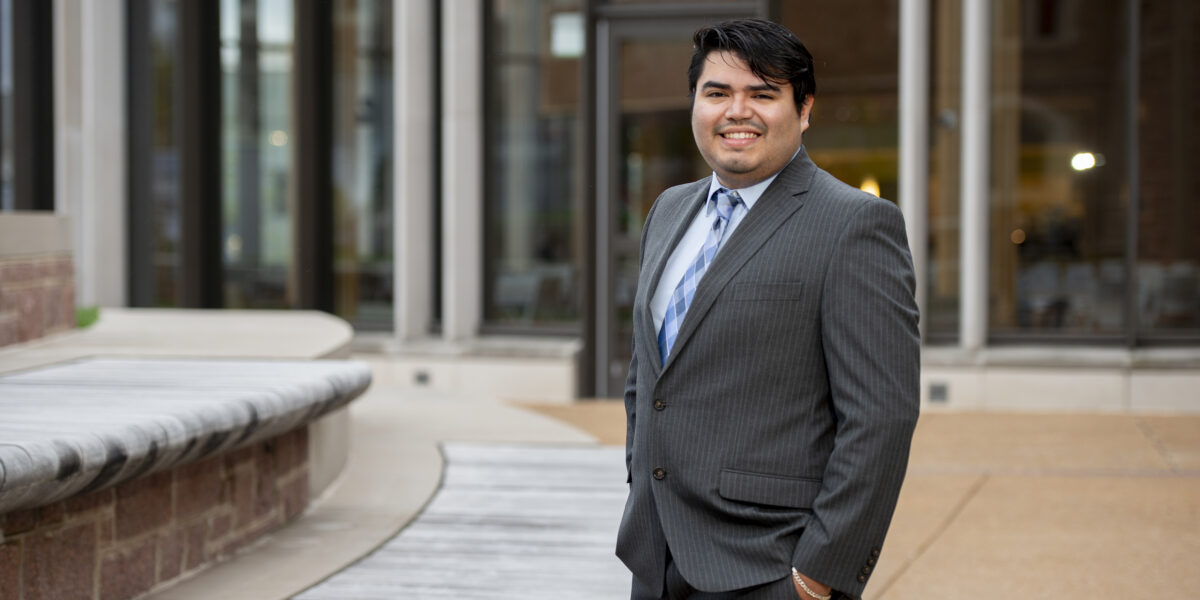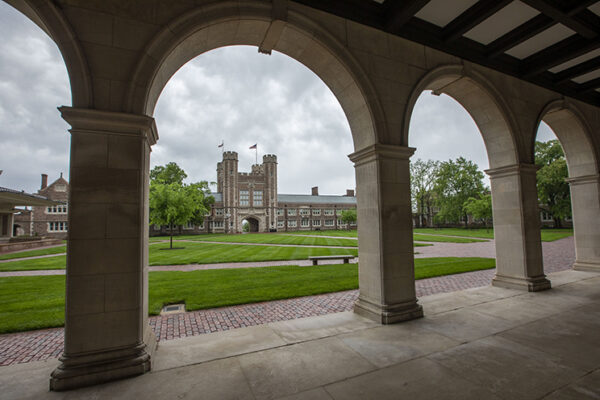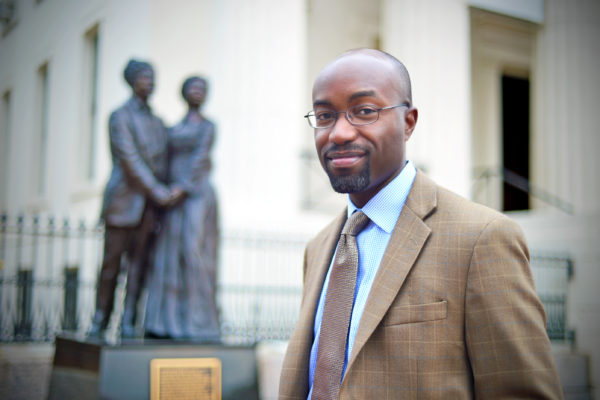When Robert Sagastume earned a full-ride scholarship to the University of Missouri-Kansas City, he thought he had achieved the American Dream. He had emigrated from Honduras as a young boy and worked hard to master English. Long hours of studying paid off — he graduated at the top of his high school class and now would be the first in his family to go to college and ultimately, he hoped, law school.
 But state law forced him to put his dream on hold. Sagastume didn’t know it at the time, but his visa had expired and he had become undocumented. And because Missouri bars undocumented students from receiving public scholarships, financial aid or in-state tuition at public universities, he could not enroll.
But state law forced him to put his dream on hold. Sagastume didn’t know it at the time, but his visa had expired and he had become undocumented. And because Missouri bars undocumented students from receiving public scholarships, financial aid or in-state tuition at public universities, he could not enroll.
“I lost everything,” said Sagastume, who lived with his mother and older siblings. “I always believed you could be anybody you wanted to be in America. It hurt to realize I was wrong.”
Spoiler alert: It all works out for Sagastume, who graduated from Washington University in St. Louis last December with a master’s degree in social work from the Brown School and will earn his master’s in social policy in December. As the Clark-Fox Policy Institute Scholar, he received the Congressional Research Institute for Social Work and Policy outstanding student of the year award, was selected to attend the 11th annual Clinton Global Initiative University and married fellow Brown School student Dustin Fish.
But back in 2007, the future looked bleak. Sagastume had resigned himself to roofing and landscaping jobs when one day, on his way to work, a car full of teenagers chucked a Cherry Coke in his face.
“They told me, ‘Hop back to your own country, grasshopper,’” Sagastume recalled. “When I heard that, I was like, ‘No! I am not a grasshopper. I came to this country to be someone, to do better. I’m not going to let my documentation limit who I am or what I become.’”
That’s when Sagastume saw an ad for a college fair for undocumented immigrants that was organized by the Kansas/Missouri Dream Alliance. He was afraid to attend. What if it was trap set by law enforcement? But his desire to earn a degree outweighed the fear. That day changed his life.
“First, I learned that, unlike Missouri, Kansas extends in-state tuition to undocumented immigrants. After that, I enrolled at Johnson County Community College,” Sagastume said. “Meeting the members of the Kansas/Missouri Dream Alliance also started me on my path of activism. Here were people who were very open about their status, advocating for laws and policies that protect immigrant rights and helping students access higher education. I knew I wanted to be a part of that.”
Sagastume became the group’s co-director and facilitated a successful peer-to-peer mentoring program called Dreamer2Dreamer that aimed to keep undocumented youth in high school. That experience led to an internship in Oakland, Calif., where he worked with community organizers advancing workplace safety, an important issue for immigrants. Who were these organizers, he wondered.
“I was like, ‘You get paid for doing this? What did you study?’” Sagastume said. “That’s when I first learned about social work.”
By then, President Barack Obama instituted the Deferred Action for Childhood Arrivals program and Sagastume was able to work and study without fear of deportation. He transferred to the University of Kansas, a top school for clinical social work, where he learned how to provide trauma-informed support to immigrant families.
But Sagastume also wanted to enact policies that can lead to broad social change. Enter the Brown School, which had just launched its master of social policy dual-degree program.
“Working one-on-one with young people is something I love, love, love, but I wanted an education that focused on research, analysis and leadership,” Sagastume said. “I found all of that at the Brown School.”
Michal Grinstein-Weiss, the Shanti K. Khinduka Distinguished Professor and associate dean for policy initiatives, immediately recognized Sagastume’s talent and offered him a scholarship here.
“Robert’s life story and passion make him an effective leader,” Grinstein-Weiss said. “But he also is an incredible student who has embraced every opportunity to learn more about the policy issues and how to remove policy and institutional barriers on local, state and federal levels.
“Improving the lives of many people requires certain skills, like knowing how to lobby and write policy briefs and use evidence in the right way,” she said. “Robert has worked really, really hard to acquire those tools.”
Sagastume put his Brown School education to work last spring in Jefferson City as a legislative intern for the Missouri House of Representatives, where he promoted a bill that would extend in-state tuition to undocumented immigrants. The measure was soundly rejected by lawmakers, who said it would take away opportunities from U.S. citizens and provide an incentive for people to immigrate illegally.
But Sagastume has not given up the fight. To him, expanded college access is a win for all Missourians.
“The truth is the Latinx community is very family oriented so these young people aren’t going anywhere,” Sagastume said. “In addition, Latinx people are very community oriented and often pursue careers in nursing and teaching — positions that are going unfilled in our state. Why wouldn’t you want to leverage all of that potential to benefit our state?”
Postscript: After publication of this story, Missouri lawmakers advanced a budget proposal that would allow state-funded schools to charge undocumented immigrants living in Missouri in-state tuition. The news made Sagastume weep with happiness.
“I cried for those whose present may now be brighter because in-state tuition will be the difference in being able to complete and afford their dream goals. I also cried for the future generation that will have access to in-state tuition because their future will be bright and hopeful,” Sagastume said.
Then on May 9, the day of Sagastume’s 33rd birthday, House GOP members insisted the tuition language be stripped from the budget.



